In the legends of Mitra-Varuna, there is more evidence that our ancient ancestors understood the subconscious mind. The symbolic meaning of Mitra-Varuna in the Rig Veda explains the nature of the Unconscious Mind.
Just as we find in ancient mythology, Jung’s model of the human psyche includes archetypes. Two examples are defined as the persona, the physical aspect of your nature that relates to the external world, and anima or animus, your spiritual nature that relates to the internal world.
Jung also recognised that a failure to integrate unconscious archetypes into the conscious mind can create destructive consequences. Negative aspects of unconscious archetypes can evoke feelings of jealousy, anger and revenge. These negative energies are then projected back on to us in the form of negative manifestations.
In his writings Jung warns of the dangers the shadow presents:
“…it is a frightening thought that man also has a shadow side to him, consisting not just of little weaknesses and foibles, but of a positively demonic dynamism.” ~ Carl Jung, On the Psychology of the Unconscious
The wise sages of old were also aware of the destructive qualities that reside deep within your subconscious. One of the mechanisms they used to demonstrate this was through the esoteric symbolism in the stories of Varuna and Mitra.
In ancient symbolism, the character of Mitra was used to represent the morning star. He is a solar deity, one of the 12 Adityas mentioned in the Rig Vedas. He is also one of the seven deities that preside over the day thus known as Lord of Light and grants wealth (of knowledge).
In Sanskrit, Mitra means “an ally” or “friend.”
The symbolic meaning of Mitra connects him with harmony and the integrity of truth that keep relationships strong. Hindus invoke this god when signing a business contract. He is also the god of friendship together with other important aspects that are required to maintain a peaceful life.
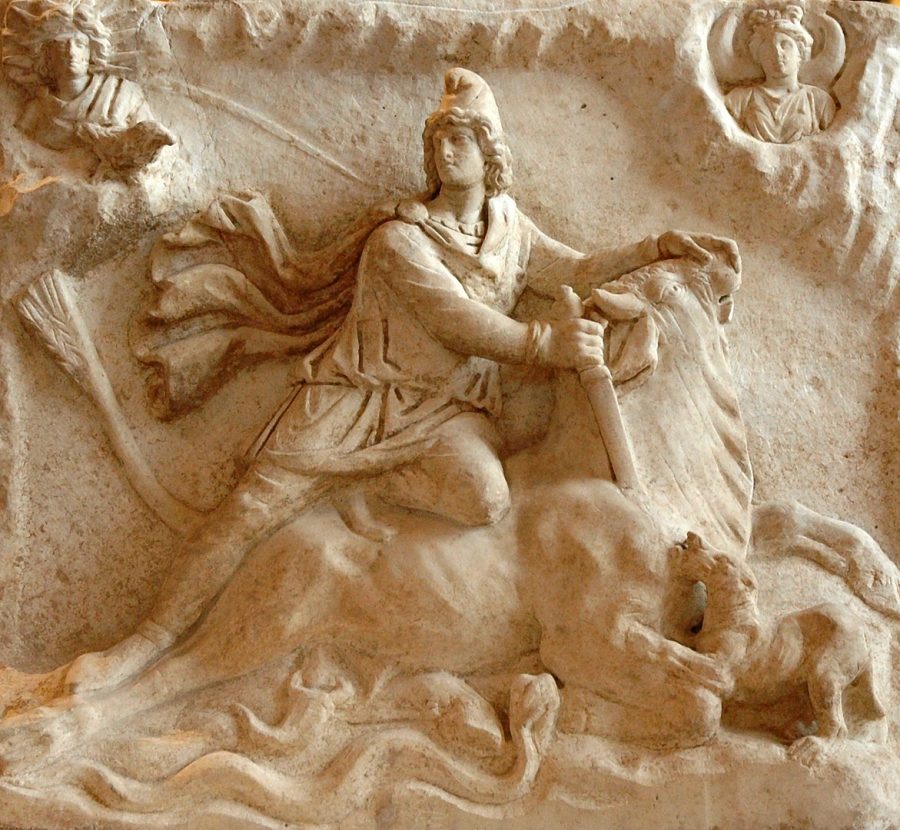
When you apply the character of Mitra in Hindu myth to Jung’s model of the human psyche, it becomes clear that ancient writers understand the importance of conscious awareness. Good people, bring good tidings.
But what is conscious awareness?
The simple answer is to be consciously aware of yourself; the contents of your mind, how you feel towards yourself and others, and the actions you perform. Are you creative or destructive?
As a sun god, the symbolic meaning of Mitra means to have an understanding of the Self. Varuna, on the other hand, is an aspect of the Unconscious that, as the Jungian psychoanalyst, Marie-Louise von Franz points out, can either be destructive or rewarding.
“The archetype is the promoter of ideas and is also responsible for the emotional restrictions which prevent the renunciation of earlier theories. It is really only a detail or specific aspect of what happens everywhere in life, for we could not recognise anything without projection, but is it also the main obstacle in arriving at the truth.” ~ Marie-Lousie in Franz, Alchemy: An Introduction to the Symbolism and the Psychology
There are two aspects to Varuna is ancient symbolism. As an Aditya, he was elevated from an Asura who is part god-part demon. But solar deities are also noted as “Sovereigns of the Cosmos” and can be both terrible and magical.
Like Mitra, Varuna is an “omnipresent” and “omniscient” god which reflects they are an element of human consciousness and not rooted in the mind. The shadow self is part of your subconscious that you are not always aware of.
As Jung pointed out:
“if an inferiority is conscious, one has the chance to correct it…if it is repressed and isolated from consciousness, it never gets corrected.” ~ Carl Jung, Psychology and Religion
Varuna is chief of the Adityas and represented the ‘dark side of the sun’ thus presided over sunset and the coming of the night. It is said that the moon moved by his will alone. The moon represents emotions and the mysterious aspect of your unconsciousness. You may feel that something is there, but you’re not sure what that something is.
Varuna lives in the kingdom of Sukha which represents happiness. He lives in a thousand-columned golden mansion and observes humanity.
The Rig Veda tells us Varuna, “extends the air above the trees; he has put strength in horses, milk in cows, willpower in hearts, fire in waters, the sun in the heaven and soma upon the mountain.”
Although Varuna represents the shadow self where the base consciousness of your animal instincts resides, tapping into this aspect of your character can bring happiness. We call it fun, letting off steam; getting sloshed. In Hindu art, Varuna is often pictured with reptiles – symbols that denote the capacity for man to transcend the material plane.
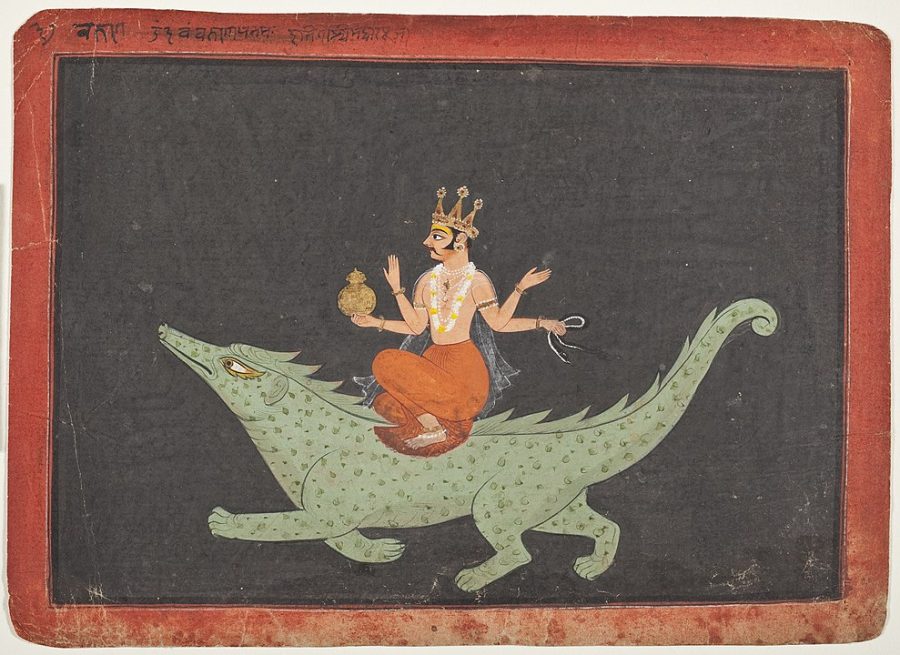
Your dark passenger is not a piece of your consciousness that should be dismissed lightly. Rather, it should be embraced as it helps you to discover negative aspects of yourself.
Even your dark passenger is with you to help expand your conscious knowing. After all, it is consciousness and consciousness wants to evolve.
If you limit yourself to only following the light, how can you experience the rich and vast existence that you have been granted with on earth? Varuna grants wealth to the divine as well whilst protecting cattle – cattle representing your animal instincts.
The twins, Mitra and Varuna teach lessons of morality. Sometimes you have to understand your dark side and be consciously aware of the evil that resides in you in order to take control of it.
In the earlier legends of Hindu mythology, this connection with morality saw Mitra-Varuna as an extremely powerful god, arguably the most important although there were more popular gods such as Indra and Agni that are mentioned much more often.
But Mitra-Varuna were considered as the moral laws of the Universe that guard justice and truth. Varuna is described as having thousands of eyes (the stars) and is the god that hands out punishment when judging humans on the merits of their actions (dharma).
The role of Mitra-Varuna was later taken on by the sons of Surya, Yama the god of death that represents Karma, and his twin sister, Shani or Yami who represents dharma, the practice of living a righteous life, a likeness we find reflected in Mitra.
In religions, sin is recognized as a violation of the pure mind, and Varuna helps us to shatter the illusion your mind is programmed with as you grow up. The culture of sex and violence in TV, mainstream films and many other sources merely serve to provoke the desires of your dark passenger.
But as Lord of Light, the symbolic meaning of Mitra-Varuna is that part of your consciousness that can identify the error of your ways when you take things too far. Although the point of reaching self-realisation may arise from an archetypal projection, the Truth delivers you from the bondage of the ego-mind. It does not mean that you are a bad person, you are just experiencing other dimensions of your conscious reality.
When I was researching my first book, “What Modern Man Can Learn From Ancient Civilisations,” I noticed the ancient Maya had an obsession with Venus.
When it comes to the Maya civilisations, scholars have only gotten as far as pushing the astronomy connection and at the time, I missed the connection Mesoamerican cultures used astronomy in myths as analogies of human consciousness.
In the legends of the Sun God, Quetzalcoatl and his dark twin, Xolotl, the brothers are referred to as the morning star and the evening star. In the myths of the ancient Maya, the stars’ reference Venus which can be seen at certain times of the year in the morning sky and the evening sky.
Xolotl ruled over Venus in the evening, thus representing the shadow nature of your psyche. Quetzalcoatl, known as the “precious twin,” resided over the “light” of the day when it is possible to see things more clearly. In other words, you are consciously aware.
Writers from the Greco-Roman period used details of astronomy in myth as well as we find in the Goddess Venus/Aphrodite. Primarily known as the goddess of love, she also has a jealous and devilish side that she uses to punish mortals and other gods.
Other Greek legends also describe the twins of Apollo – the Sun God – and Artemis, the Mistress of Animals as opposing elements of your higher and lower consciousness.
In Persian mythology, there is the righteous Gilgamesh and his wild brother Enkidu, whilst the Zoroastrian legends talk of Ahura Mazda, the creator of light, truth and goodness, battling with his twin enemy, Ahriman, the spirit of darkness, lies and evil.
There are many ancient myths that use twins as symbolism to reflect the dual sides of your character. The good twin usually overcomes the evil twin. Even the story of Cain and Abel in the Bible’s book of Genesis, tells this same story.
Cain and Abel are the first creations of Adam and Eve, creations in this sense meaning ideas which are born in the early stages of an idea. Your understanding becomes clearer the more information and experience you have.
Genesis tells us that Abel looks over the flocks. This means he is associated with animals – the lower consciousness nature. Cain, meanwhile, tills the soil, putting in hard work to produce the harvest. He is thus related to nurturing and fertility.
Yet the Lord (you) favours the offerings of Abel (fun), which caused Cain to be jealous. So he kills his brother but is then cursed. By killing Abel, Cain destroys his shadow self from which he can learn to become a better human being.
When Jung wrote about the shadow self, he said the way to recognize your dark passenger is to see the reflection of your hidden soul in the minds and actions of others. Shadows project themselves onto reflective surfaces, and as beings of light, you see your shadow self in others.
“Whoever looks into the mirror of the water (the Unconscious) will see first of all his own face. Whoever goes to himself risks a confrontation with himself. The mirror does not flatter, it faithfully shows whatever looks into it; namely, the face we never show to the world because we cover it with the persona, the mask of the actor. But the mirror lies behind the mask and shows the true face.” ~ Carl Jung, The Archetypes and the Collective Unconscious
I should warn you now that this article is going to be a long read. Here we are going to take an in-depth look at how numbers are a reflection of your inner world, and what it means when you repeatedly see the number 21.
If you just want to know the essence of the number 21, take a look at the abridged content.
However, I strongly recommend that you understand how energy works in order to get the most benefits from the Hermetic Principles of self-transformation. And that’s what we teach you here.
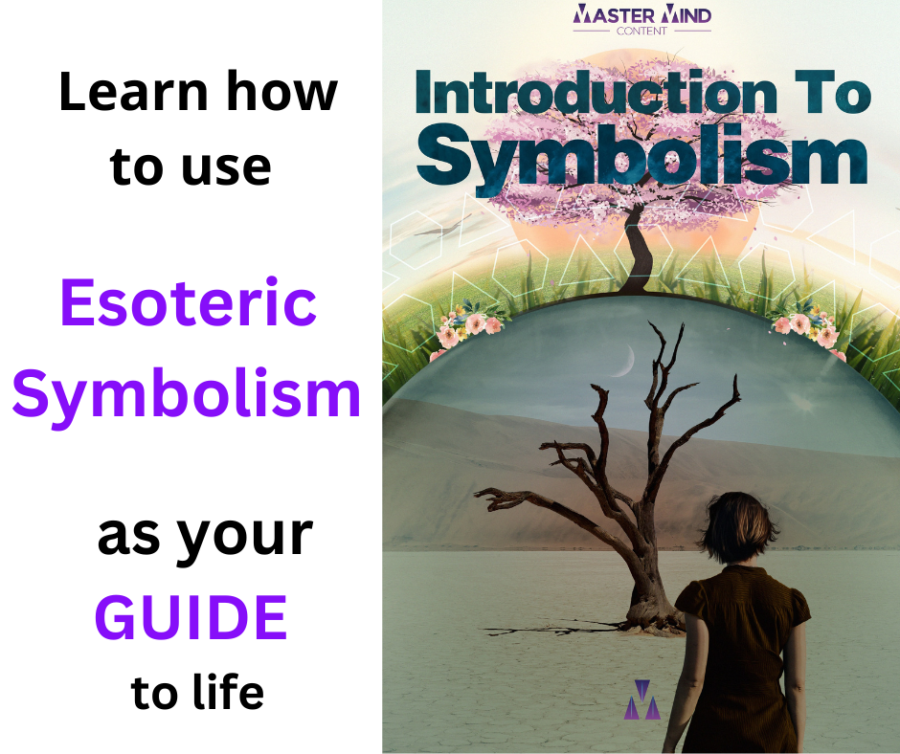
Unlike many self-development programs, Master Mind Content not only explains what you need to do, we also tell you why you need to do it and how it works. Having a fully-rounded understanding of how and why you need to do something makes personal development easier.
Symbolism simply gives you a visual and a story which improves memory retention and memory recall. But it also helps you to expand your conscious awareness of the world.
Dipping in and out of our blog will furnish you with plenty of information, but will take a long time for you to pick up all the pieces. If you want to fast-track your way to perfection, the best way is to purchase one of our Self-Development Programs or Symbolism Courses.
But before you commit yourself to self-help by symbolism, read through this in-depth explaining the deeper esoteric meaning of the number 21. This is a prime example of how symbolism works and gives you a good feel for the teachings you can expect from Master Mind Content.
When numbers or symbols are repeatedly brought into your awareness, it is not a coincidence. So don’t ignore them. The synchronicity of symbols is one of the ways your subconscious gives you a nudge and tells you to pay attention.
You probably know from experience when your subconscious is trying to communicate to you. It is those moments when “the Universe is trying to tell you something.”
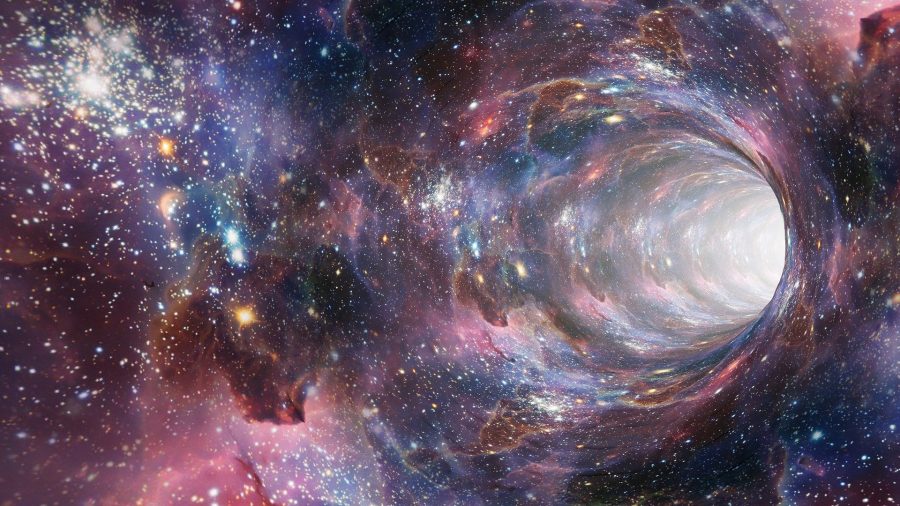
You don’t want that last one to happen. Such experiences are rarely good. Is it not the case that people often learn the hard way?
Numbers and symbols are another way for the subconscious to send you a sign. They hold a certain Truth that you need to know.
The information you come by may help you resolve a problem you are encountering, answer a question you throw out to the Universe or to warn you to address a suppressed emotion.
Regardless of the specific reason for the appearance of numbers and symbols, understanding the esoteric meaning can help you evolve and move forward in life.
And that is what your unconscious mind is trying to do. The objective of the subconscious is to survive and thrive.
Investigations into quantum physics throughout the 20th Century determined that everything is energy, everything vibrates, and Motion is manifest in all things in the Universe.
Modern science has basically rediscovered the Hermetic Law of Gravitation (the principle of vibration) noted by the ancient Egyptians and early Greek philosophers:
“Nothing rests; everything moves; everything vibrates.” – The Kybalion
Some modern-day scientists recognise the phenomena of the mind are also modes of vibration that pick up resonating frequencies in the same way as radio waves.
Moreover, physicists have discovered that quantum particles “randomly pop in and out of existence.” The now infamous ‘double-slit experiment’ was confirmed by the Wiezmann Institution in 1998:
“…by the very act of watching, the observer affects the observed reality.”
The revelation that particles respond to conscious thoughts strengthens the theory of quantum entanglement which postulates particles are connected by energy vibrating at the same frequency. Albert Einstein called this “spooky actions at a distance.” Genius!
Then there’s David Bohm’s model of the Universe which suggests that particles contain information about the entire Universe in a single cell. Could this be what religions mean by God being omnipotent, omniscient and omnipresent?
“Just remember that I am, and that I support the entire cosmos with only a fragment of my being.” – Krishna, Bhagavad Gita
When you combine the theories of quantum science, it provides us with insights that help us to understand and explain how the subconscious mind manifests the things you think about into physical reality.
The Laws of Thermodynamics explain the rest. In a nutshell, energy does not gain or lose substance, it transforms into something else.
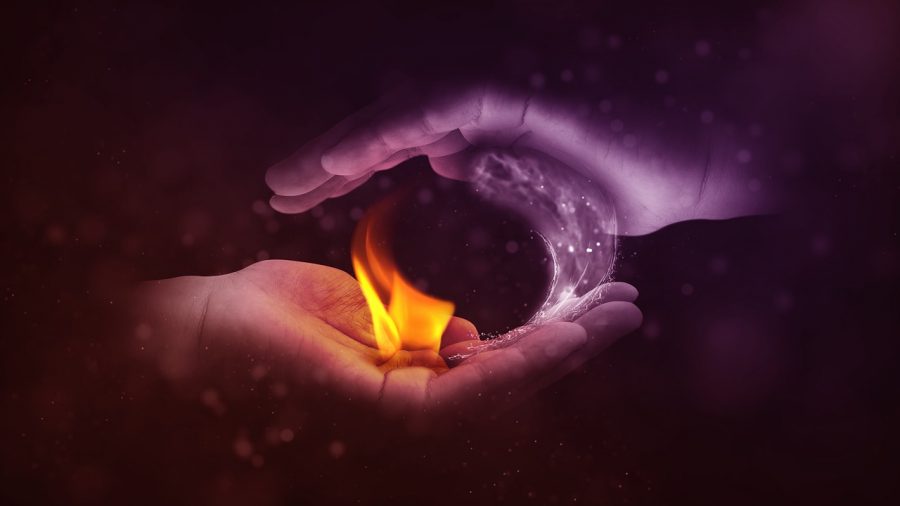
Moreover, all these conditions are accompanied by a vibration which has a corresponding rate of frequency.
Which brings us to the symbolic meaning of the number 21.
When you repeatedly see the number 21, it marks the next phase of life that has begun following the coming together of universal energies you find in the number 20.
In other words, you now have to deal with the latest experience in your life.
Ultimately, you have brought together the cosmic vibrations from the “higher worlds” and they have become manifest in the “lower world” as your experience. You did this through your thoughts, emotions and actions.
How your experience will unfold in this next phase of life will again depend on your thoughts, emotions and actions.
You, therefore, have to take stock of what new things are happening in your life right now and determine whether you want to keep them or to change them.
It’s worth noting at this point that what you create in life is described in the Hermetic Law of Correspondence – one of the all-important 12 Universal Laws of Nature.
Now you understand a little bit about particles of energy and vibration, are you ready to tackle the next question?
The Law of Correspondence is described in various Rosicrucian Texts and the referred Hermetic Book, The Kybalion which is said to reveal the secret knowledge passed down by the ancient sages of Egypt and Greece.
The Kybalion explains that everything in the Universe is connected across various planes of existence – much like the quantum entanglement theory of modern science.
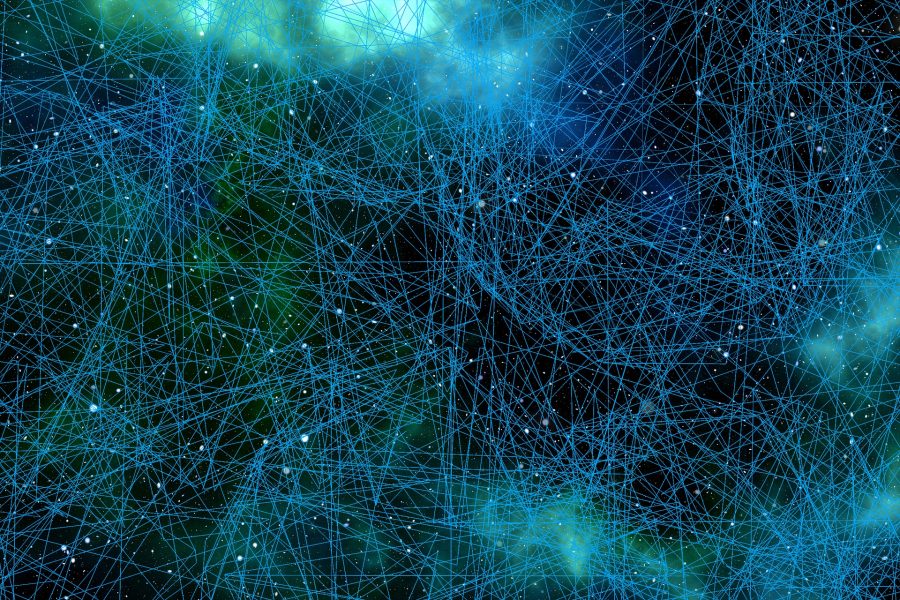
To put this phenomenon into realistic terms, the Law of Correspondence dictates that the energy you transform in your inner world is subsequently reflected in the outer world; the thoughts we hold in the conscious mind are stored in the subconscious and the thoughts we store in the subconscious are recalled to the conscious mind.
“Within your subconscious depths lie infinite wisdom, infinite power. It waits for you to give it development and expression. If you begin now to recognise the potentialities of your deeper mind, they will take form in the world. “ – Dr. Joseph Murphy, The Power of the Subconscious Mind
The transference of energy arising from thoughts impacts your emotions and ultimately your actions. It is often through action that you create your experience of life.
Furthermore, the subconscious mind does not distinguish between that which is imagined and that which is a real experience. Energy transforms and recreates whatever it is you focus on or assert that you can, and will do something.
With the right knowledge, you can adopt new actions and raise your higher mental state. In doing so, you connect with vibrations that resonate at a higher frequency and which correspond with your own changed mental state.
When you see numbers and symbols, they are an indication of the actions you must take or the “right thought” you have to adopt. What you have to change may be something like a belief system or attitude that ultimately prompts certain behaviours in you.
The Law of Correspondence teaches you to notice and acknowledge your imperfections. Your successes too – don’t forget those. When something goes well in your life, you want to continue performing the right things.
If the number 21 keeps appearing in your life right now, you need to call for optimism, courage, creative expression and inspiration.

If you feel pessimistic or negative towards something, you will smother inspiration and not be able to generate the creative expression you need to move forward with the next phase of life.
The key to personal happiness, freedom and peace of mind is to change your thoughts! By focusing exclusively on what it is that we truly desire, and by eliminating all thoughts of what we don’t want, we can begin to shape, mould and build our lives to our own specifications!
I appreciate that all this science is difficult to absorb, understand and remember. That is why Master Mind Content explains the concepts using ancient myths – the stories help you remember the science.
Come on, I’ll show you how!
Christian traditions reflect the positive aspects of the number 21 as a representation of God and the Temple.
It should be noted that God is a symbolic code for consciousness and the Laws of the Universe. The Temple is symbolic of the body. What you have to understand is how universal laws affect the body.
Sins are code for mistakes and the rebellion reference is being judged from a moralistic viewpoint. It is more appropriate to view rebellion as decisive action to change sinful habits and adopt right thought, right action and right feeling.
Every step you take in your physical life impacts your personal growth. When you don’t learn the lessons you need to evolve, you keep experiencing the same bad luck – which will happen when you see 10’s and 20’s.
In Exodus, the Israelites committed 21 acts of rebellion to escape the bondage of the Egyptians.
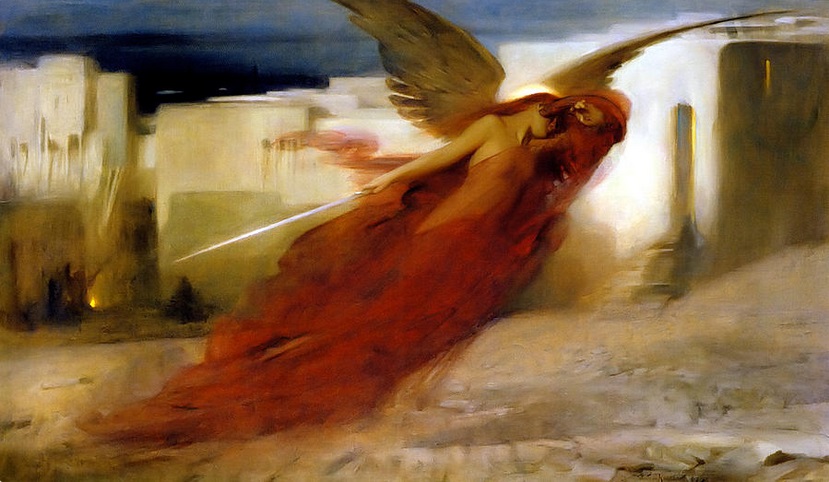
Sigmund Freud’s model of the mind explains the overinflated ego takes over the conscious mind and is prompted by programs stored in the subconscious.
This is why human beings are creatures of habit and find it difficult to break away from the norms you are comfortable with – even when you know they are toxic. Doing so requires courage, optimism and inspiration.
Exodus also explains that God casts down his judgement on the Egyptians on the 21st day in the month of Nisan by drowning Pharaoh and his army in the Red Sea.
In the Jewish calendar, Nisan represents the redemption of the Israelites from slavery in Egypt.
The exoteric meaning of the crossing of the Red Sea represents obstacles that appear in life. In hermetic teaching, the sea represents the body, and Bible scholars also relate the sea to “a collection of memory knowledge.”
When you apply this to the electro-biological process of the body and the psyche, the biggest obstacles you face are the subconscious programs that prompt thoughts and actions that do not serve you – your collection of memories and the suppressed emotions that come with past experiences.
The 21st day in the month of Nisan falls on the seventh day of the Judaeo-Christian tradition. The festival is held in the Spring – a time of renewal – and three feasts are observed.
The feasts of Nisan are said to give you an opportunity to demonstrate obedience and provide protection. In other words, obey the higher aspect of your conscious nature that wants you to thrive and you will continue to vibrate at higher frequencies that connect you with the knowledge you need to know.
The number 21 is also associated with compassion. And compassion holds the key to what you manifest. Compassion is also associated with the female principle, the Mother Goddess, which is also associated with the number 7.
The number 21 also features in the Equinox festivals in autumn, known as the Feast of Tabernacles. Here the focus is to show gratitude and love. When these qualities are recognised in the inner world, they are reflected in the outer world.
The seventh Feast of the Tabernacles which is taken on the 21st of October is known as Sukkot and represents “the time of restored fellowship with the Lord”.
Therefore, it is a time for observing your “sins” (mistakes/bad luck) and rebelling against the subconscious programs that prompt you to take wrong actions.
This is explained in Revelation 20 which is associated with the Feast of the Tabernacles in Jewish culture:
“And I saw thrones, and they sat upon them, and judgement was given unto them: and I saw the souls of them that were beheaded for the witness of Jesus, and for the word of God, and which had not worshipped the beast, neither his image, neither had received his mark upon their foreheads, or in their hands; and they lived and reigned with Christ a thousand years. But the rest of the dead lived not again until the thousand years were finished. This is the first resurrection. Blessed and holy is he that hath part in the first resurrection: on such the second death hath no power, but they shall be priests of God and of Christ, and shall reign with him a thousand years. And when the thousand years are expired, Satan shall be loosed out of his prison. And shall go out to deceive the nations which are in the four quarters of the earth, Gog, and Magog, to gather them together to battle: the number of whom is as the sand of the sea. And they went up on the breadth of the earth, and compassed the camp of the saints about, and the beloved city: and fire came down from God out of heaven, and devoured them. And the devil that deceived them was cast into the lake of fire and brimstone, where the beast and the false prophet are, and shall be tormented day and night for ever and ever.” – Revelation 20:4-10
Satan represents “sins” or Freud’s id. It is the dark passenger which is a reflection of your ego, the aspect of your nature that has strayed from the True Self and commits errors. It is the antithesis of Yahweh, the anti-Christ. Recognising the Devil within guides you to individuation.
In Gematria, 21 is equal to the number three; 2+1=3. In Hermetic traditions, the three represent the triangle of manifestation which is the coming together of Universal energies in relation to your thoughts, emotions and actions.
Look within, observe repetitive thoughts and be aware of the synchronicity of symbols. When you see a repetition of the 21 or the three, it is time to carefully plan your actions. Allow yourself to be guided by your higher intelligence.

Click here to download your FREE copy of the Introduction to Symbolism Guide
Hindu mythology is rich in symbolism and meaning. The symbolic meaning of Agni is a profound example and underscores the genius of ancient Sages. The timeless wisdom left for us in mythology and religious scripture is truly beneficial.
However, to benefit from the wisdom of ancient sages you need to understand the esoteric meaning of symbolism. The hidden meanings reveal far more relevant information that exoteric explanations provided by organised religions and academia.
Modern historians and archaeologists often refer to our ancient ancestors as primitive. Yet when you interpret the earliest writings of ancient cultures, it is evident they were far more advanced than they are given credit for.
That numerous researchers have demonstrated the engineering works required to build the pyramids at Giza in Egypt and the temples of Mesoamerica were ahead of there time is intriguing evidence, to say the least.
As a matter of fact, the conclusion among many of these researchers is the feats of engineering would not have been possible with the tools available at the time (according to the official timeline of history).
When you decode the esoteric symbolism written into ancient literature, you come to the same conclusion as the engineers and stonemasons.
Our ancient ancestors did not have “primitive” minds.
On the contrary, you find they had advanced knowledge of science and medicine. They understood the human condition, how energy transforms, the capacity to heal, aspects of human consciousness and how to transcend the material plane.
Although this knowledge has been available for thousands of years, it has been forgotten, ignored or suppressed. Today, as the world falls apart around us, people are beginning to awaken to this timeless wisdom.
In doing so, we are discovering the secrets to life – and at the same time recognising the genius of wise men than existed at least 7000 years ago. Our ancient ancestors were much more advanced than scholars would have us believe.
The Rig Veda is the oldest surviving work of literature that we know of. The books are the first examples of Hindu mythology and appear to reference physical laws that scientists have only rediscovered in the last 100-150 years.
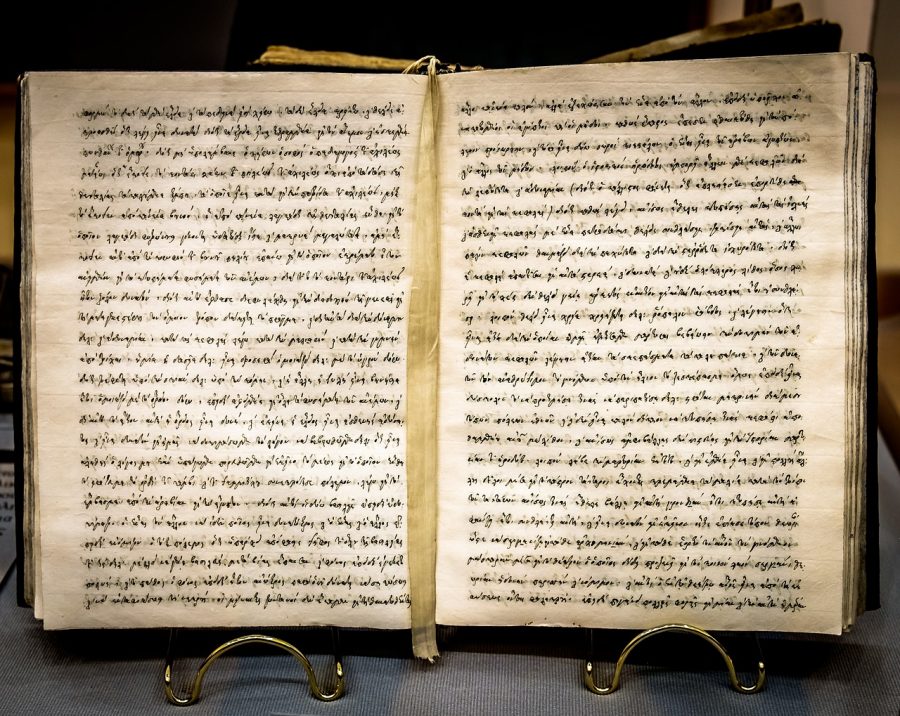
Agni mostly featured in Vedic hymns in association with the sun, lightning, comets, domestic fires, the funeral pyre, and the digestive fire of the stomach. He is most closely related to sacrificial fires which positions him as a god with the power to destroy and recreate.
As a matter of fact, Agni is portrayed as a “creator-maintainer-destroyer,” the three qualities of the Hindu Trimurti, Brahma, (creator), Vishnu (maintainer) and Shiva (destroyer). Given the Supreme Gods of the Trimurti take a central role in Hindu mythology underscores the importance of Agni.
In later Hindu texts, with the rise in prominence of the Trimurti, Agni, together with his brothers Indra and Surya begin to lose importance. Whereas Indra is known as the King of the Gods akin to the Greek god Zeus, Agni ruled the earth and Surya ruled the sky and heavens.
So what does Agni represents in Hindu symbolism?
Before we can decode the symbolic meaning of Agni, we need to take a look at his functions in Hindu mythology together with some of the symbols attributed to him.
When decoding ancient symbolism, it’s important to remember the gods, demons and objects reflect attributes of human nature. Even when the symbolism corresponds with objects, animals or elements of the natural world, the overarching correspondence can still be tied to human nature or the functionality of the body and mind.
“All the mythologised process of nature, such as summer and winter, the phases of the moon, the rainy seasons, and so forth, are in no sense allegories of these objective occurrences; rather they are symbolic expressions of the inner, unconscious drama of the psyche which becomes accessible to man’s consciousness by way of projection – that is, mirrored in the events of nature.” ~ Carl Jung, The Archetypes and the Collective Unconscious
For example, we are told Agni is associated with ‘seven winds’. That may have something to do with the digestive fire but I don’t think so.
In Hindu art, Agni is depicted with red skin and two heads. This suggests a dual aspect. Perhaps he is two-faced. As it turns out, Hindus love and fear the fire god, because, like fire, he can be creative and destructive.
I’ll tell you now, this is not why he is depicted with two-faces. As a matter of fact, a hymn in the Rig Veda describes him with three heads and three mouths. This is a reference to aspects of consciousness which Freud suggested has three parts; id, ego and superego.
“Bright, seven-rayed god, how manifold thy shapes
Revealed to us thy votaries: now we see thee
With body all of gold; and radiant hair
Flaming from three terrific heads, and mouths,
Whose burning jaws and teeth devour all things.
Now with a thousand glowing horns, and now
Flashing thy lustre from a thousand eyes,
Thou’rt borne towards us in a golden chariot,
Impelled by winds, and drawn by ruddy steeds,
Marking thy car’s destructive course with blackness.”
Agni is usually shown riding either a goat or a ram, the most commonly sacrificed animal in India at the time. The presence of sacrificial animals typifies the animal nature of mankind. Given Agni is riding the beast, it signals that he has control over his animal nature.
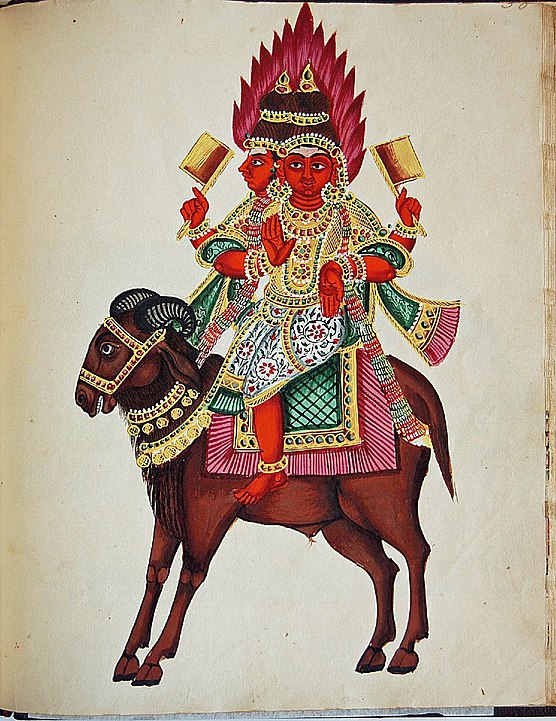
Individuals that are not able to control their animal urges for food and sex are said to be influenced by the reptilian brain. This is the oldest part of the brain but also the least sophisticated in terms of cognitive function. Psychologists warn ‘not to listen to your reptilian brain.’
According to various myths, Agni is tasked with delivering human sacrifices to the gods. However, he is initially afraid to fulfil his obligations and goes into hiding. The various myths each give a different hiding place but each time gives us information about the true symbolic meaning of Agni rather than the fickle official version of Agni.
The first myth explains Agni tries to hide is the subterranean waters but the fish expose him to the gods. As a result, Agni cursed them so that fish would become the easy prey of men. Fish represent inspiration, the seed of an idea. Because they live in water, they are considered pure. Water represents the unconscious.
Agni curses the fish saying, “Since thou hast pointed me out may men slay thee whenever they like.”
Sure enough, mankind has a tendency to quash ideas that arise as inspiration before we give them the opportunity to take hold.
Deepwater usually has a maternal significance corresponding to the “womb.”
In another attempt to hide Agni is given away by frogs. The association with water again relates to the unconscious. Frogs are also associated with fertility and rebirth. In turn, this is symbolic for improved ideas and information.
The next animal to give away Agni hiding place is the elephants which symbolise wisdom, power, patience and prosperity. Elephants also share an association with memory – which arise from the subconscious. Note that the force of nature has shifted from the unconscious to the subconscious.
To clarify here, the unconscious is an aspect of your conscious nature that is unknown to you. This may either be because you have not had an experience in which an aspect of your consciousness was allowed to express itself, or part of your consciousness has been repressed. I explain this in greater detail in the Beginner’s Guide to Symbolism Course.
Back to Agni.
In a last desperate attempt to hide from the gods, Agni hides in a sami tree but is given away by a parrot – a symbol of truth. Trees are a symbol of the mother archetype, one aspect of which relates to the womb which is symbolic for the nurturing of creation.
Interestingly, sticks from the sami tree are still used in Hindu rituals to make fire. An interesting creation myth of Agni is that his parents are two sticks. The mother is the lower stick in which the upper stick – the father – is inserted to make a fire. This sexual image denotes the male and female aspects required for energy to become manifest.
There is also a psychological focus to this story. When Agni is born, his fire devours his parents, the sticks (Rv. X. 79 4). This is analogous to children replacing their parents at the helm of the family. In psychological terms, it is information, ideas, beliefs, attitudes etc being replaced by improved information.
When Agni hides in the sami tree, he is reported to the gods by a parrot – a symbol of Truth. This is analogous of self-realisation. Eventually, with better information, you learn the Truth about your True Nature.
But the symbolic meaning of Agni does not end there.
A feature of Hindu mythologies involving Agni is the evolution of his character. There is a significant development that gradually carves out a broader understanding of the fire god’s symbolic meaning. To be fair, he does feature in 200 hymns.
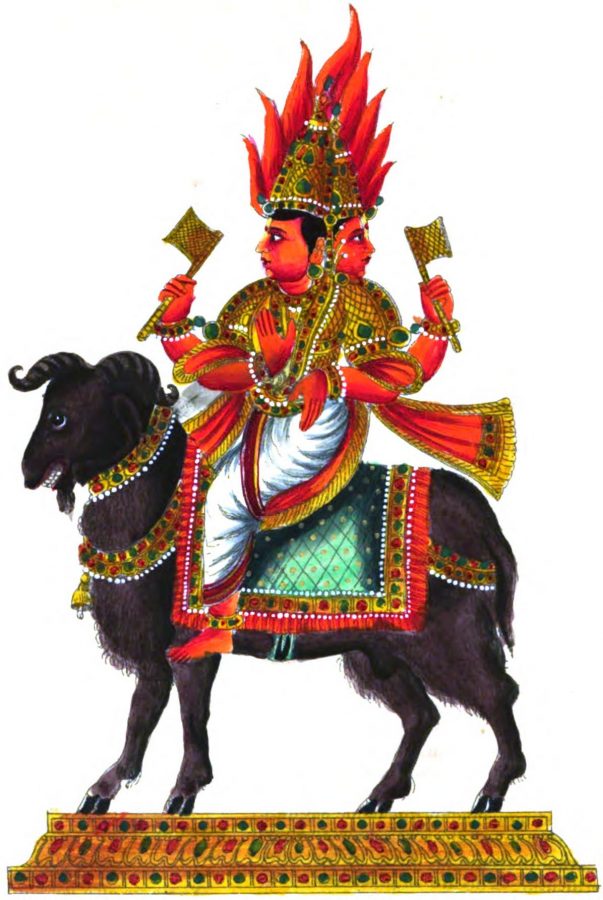
In Hymn One of the Rig Veda, we are told Lord Agni is the Minister of sacrifice…who presents offerings to the Gods. This is our first clue as to the true symbolic meaning of Agni.
1 I Laud Agni, the High Priest, God, Minister of sacrifice,
the divine, the possessor of great wealth who presents to offering to the Gods.
2 Worthy is Agni to be praised by living and ancient seers.
He shall bring hitherward the Gods.
3 Through Agni, the worshipper obtains wealth, most rich in heroes, and the multiplier of mankind.
4 Agni, the perfect sacrifice which on every side, the protector reaches to the Gods.
5 May Agni, the attainer of knowledge, he who is true, renowned and divine,
The God, come hither with the Gods.
6 Whatever blessing Agni may bestow unto the worshipper,
That Aṅgiras, is indeed the truth.
7 We approach thee Agni, day by day with prayer
Bringing thee reverence,
8 Ruler of sacrifices, guard of Law eternal, radiant One,
Increasing in thine own abode.
9 Be to us easy of approach, even as a father to his son:
Agni, be with us for our wealth.
In later myths, we are told Agni has three sons and 45 grandchildren. In the Vayu Purana, the number of sacred fires attributed to Agni is 49. In gematria, 49 corresponds with the number four; 4+9 = 13, 1=3 = 4.
In number symbolism, four relates to the physical plane. It is the point when libido first becomes manifest as a physical reality and is thus fully evolved in your conscious mind.
Agni also has three older brothers – meaning he is the fourth born.
In addition, the Bṛhad-devatā reveals that Agni dissolves into the earth and his body parts become earthly things. His liver became iron, his bile emerald, his phlegm crystal, his bones the Devadâru tree and so on. Again, the symbolism here point towards Agni representing the material plane – or more precisely, something belonging to the physical realm rather than the spiritual realm.
We can, therefore, determine that the symbolic meaning of Agni is not related to the unconscious, and thus not relative to an archetype.
The eminent psychoanalyst Carl Jung, a keen alchemist, recognised that archetypes in world mythologies are symbolic representations that reflect aspects of the human psyche. He postulated these archetypes are universal to mankind, and when repressed in the unconscious project themselves on to the ego.
“Every archetype, at its first appearance and so long as it remains unconscious, takes possession of the whole man and impels him to play a corresponding role.” ~ Carl Jung, Psychology and Alchemy
You will probably have had experiences when you did something you wouldn’t ordinarily do. These occasions are accompanied with bewilderment and the words, “what on earth was I thinking?” it “I don’t know what came over me!” You may also have witnessed people close to you also “acting out of character.”
Have you also wondered sometimes why particular thoughts appear in your mind; thoughts that simply cannot be related to your personal experience, and thus do not come from the subconscious?
These thoughts and actions come from the Unconscious. Many of the gods in world mythologies represent these aspects of human nature. Jung postulated these Unconscious archetypes project themselves on to the conscious mind and prompt actions you may not ordinarily do of your own free will.
There are symbolic features that connect Agni with both the Unconscious and the conscious mind. Firstly, he is the “messenger of the gods” and crosses both worlds (the physical plane and the spiritual plane). This lends him a relationship with the Unconscious even though he does not represent an archetypal aspect of human nature.
Let’s take a closer look why.
There are a couple of stories pertaining to the birth of Agni. His parents were Kashyapa, one of the seven sages, and Aditi, a personification of the Unconscious.
Scholars appear to be confused by accounts of Agni’s birth. For example, commentary published on Ancient.eu deliver these words of, ahem, wisdom.
“Agni is the son of the Celestial Waters, and that element is closely connected with fire which is thought to be carried down to earth within rain. From there fire is drawn up by vegetation and so when two sticks are rubbed together fire appears.”
To clarify, in esoteric symbolism ‘Celestial Waters’ correspond with a body of water and relate to the Unconscious, which is Aditi. So far so good. Water and fire are also closely connected, but only in creation stories. I have yet to read a creation myth that does not feature both water and fire.
However, there are several things wrong with this statement. The most glaring is that fire does not fall from the sky with rain. That’s ludicrous. Moreover, if sticks are wet from the rain, they would not light. Nor does fire live in sticks which scholars tell us was a belief held by the peoples of ancient India.
The official line in academia is to portray ancient civilisations – or as they are called “primitive man” – as imbeciles. I whole-heartedly disagree. The wise men that penned myths and scriptures such as the Rig Veda had minds that were far from primitive.
On the contrary, they were enlightened.
The richness of the symbolism alone is evidence of that. Moreover, esoteric symbolism is universal, based on a study of nature and not an accident nor a coincidence. Esoteric symbolism is so complex it cannot be the work of a primitive mind.
Furthermore, fire and water are opposites. Fire is male, water is female. Male and female pertain to various forms of human expression. They also refer to the positive (male) and negative (female) charge of energy together with the proton (male) and the electron (female) of an atom.
Atoms are energy. Moreover, they are the building blocks of creation, the physical and the metaphysical reality you experience every second of your waking hours.
Scholars suggest the ancient Indians believed fire came from water because of a myth in which Agni is sent by the gods to locate the missing Indra. Despite scouring the earth, Agni cannot find his brother. He reports back to the gods that the only place he has not searched is the deep waters – the Unconscious.
Agni explains he cannot enter into the water because he would perish. This is significant and gives us the biggest clue as to the symbolic meaning of Agni.
It should be noted that the hymns of the Rig Veda or any other myth should not be taken literally in its entirety. Why scholars fall for this mistake is beyond me. I also find some of the interpretations of symbolism proposed by academia mind-boggling (until I heard academics have to toe the official line or risk being disqualified from their specialist field).
Moving on.
It is also said that Agni is the fire in lightning which is born from the god’s union with the cloud goddess. In the shape of lightning, the fire god causes rain. In mainstream (exoteric) symbolism, rain is linked with fertility which implies Agni is a creator god. This is consistent with Agni being described as a creator, maintainer and destroyer.
Looking at various myths that feature rain, they appear to pertain to Plato’s theory of soul fragments. If bodies of water represent the Unconscious and rain are fragments of water, there is a direct correspondence with the soul.
The “soul” is an ancient word for the subconscious. If you read authoritative alchemical texts or new-age commentaries that mention the word “soul”, replace it with the word subconscious and you will find it still gives precisely the same meaning. For example:
“It is essential for him that the three fundamental soul-forces, thinking, feeling and willing, should have undergone harmonious development before being released from their inherent connection and subordinated to the awakened higher consciousness.” ~ Rudolf Steiner – How To Know Higher Worlds
The gods of Hindu mythology always have a consort which expounds their symbolic meaning. The wife of Agni is Svāhā, a Sanskrit word meaning “well said”. In Tibet, the word translates to “so be it.” The word Svaha is chanted during fire sacrifices and uttered to announce the end of a mantra.
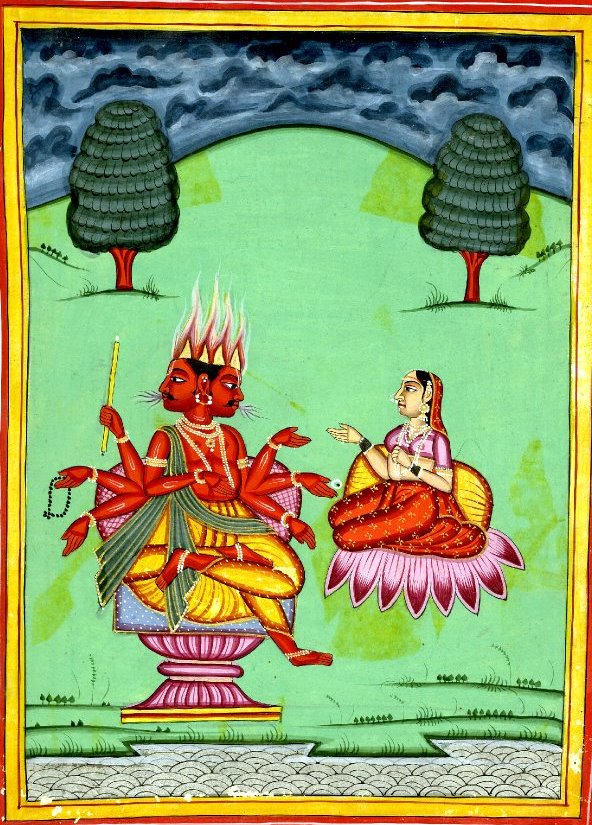
The meaning of Svāhā is also significant to the symbolic meaning of Agni, as are the god’s strong connection with fire sacrifices. In transcendental magic ceremonies, you set an intention and can say something along the lines of “let it be so”. “Well said” also implies an agreeable Truth has been spoken as an intention.
It’s also worth noting that eight of the ten books of the Rig Veda begin with a dedication to Agni and in certain sacrificial rituals the first and last offerings are always dedicated to Agni.
Agni’s association with the number ten reinforces this connection with the beginning and the end. Ten symbolises the end of one cycle is complete and a new cycle has begun. This can be clearly seen in the standard numerical system 0-9.
Rig Veda X. 51 | Varuna: ‘We often longed for thee all-knowing Agni after thou hadst entered the waters and the herbs. It was Yama O brilliant one that discovered thee sparkling forth from ten coverings.’
Again there is a correlation with the transformation of energy. The Laws of Thermodynamics state that energy always transforms. Energy is created, destroyed and transformed. Another word for transformed is “reborn”. Sound familiar? Temperature (fire) is a condition that causes energy to transmute.
These three laws, incidentally, were discovered by western science between 1824 and 1873. The Rig Veda was written in at least 3000 years earlier. Just saying.
The symbolic meaning of Agni also ties him to the chakra system. The fire god is said to ride a chariot drawn by red horses with seven wheels – supposedly representing the seven winds. As a matter of fact, the chariot represents the mind, the wheels are the seven energy centres, or chakras, which are responsible for transferring and transmuting energy.
Agni is associated with various types of fire in Hindu ritual today; the domestic hearth, the sacrificial fire and the funeral pyre; in this latter role, he is said to be delivering the dead to the ruler of Underworld, Yama, for their final judgement.
In esoteric symbolism, the Underworld represents the subconscious.
Fire is associated with light which in turn is associated with knowledge.
The word pyre is the root for pyramid which is the symbolic representation of the One Divine Flame, “the life of every creature” ~ Manly. P Hall, Secret Teaching of All Ages, a 33rd-degree mason and authority on esoteric symbolism.
In the same book, Hall also cites a passage given by Poimandres which reveals a connection between Light (fire) and Mind.
“I thy God and the Light and the Mind which were before substance was divided from spirit and darkness from Light. And the Word which appeared as a pillar of flame out of the darkness is the Son of God, born of the mystery of the Mind. The name of that Word is Reason. Reason is the offspring of Thought and Reason shall divide the Light from the darkness and establish Truth in the midst of the water. That which in you sees and hears is not of earth, but is the Word of Gid incarnate. So it is said that Divine Light dwells in the midst of mortal darkness, and ignorance cannot divide them. The union of the Word and the Mind produces that mystery which is called Life. As darkness without you is divided against itself, so the darkness within you is likewise divided. The Light and the fire which rise are the divine man, ascending in the path of the Word, and that which fails to ascend is the mortal man, which may not partake of immortality. Learn deeply of the Mind and its mystery, for therein lies the secret of immortality.”
To give you some insights into the meaning of the able paragraph, “The Word” in alchemical literature is associated with Reason. Henry Cornelius Agrippa also tells us the element of air is related to Reason also. When we speak The Word, we breathe Air. And that is why Agni is associated with the “seven winds”. I told you it had nothing to do with the digestive system.
You may remember from Hymn 1 of the Rig Veda, Agni is said to bestow wealth upon his worshippers in the human race. This wealth relates to spiritual wealth but, if you choose to, can also encompass material wealth. The key is knowing how to attract material wealth into your life.
However, in order for Agni to bring consciousness to life and lead us to ‘truth’ – that is to say our true selves – we have to sacrifice desires that are born from the ego-centred mind. Thus fire is mostly associated with sacrifices that are required to obtain purity of heart and mind. This is how we attain ‘enlightenment.’
Moreover, the light from within has to be self-knowledge and not the falsehood of illusion which belongs to the ego. Scientists tell us the world is an illusion and most of what we are taught in schools, universities and churches does not often align with the Truth.

The Word is also associated with the libido which Jung explains is “psychic energy over which he has conscious control.’ (Symbols of Transformation). Jung also states:
“The libido, which is not only creative and procreative, but possesses an intuitive faculty, a strange power to “smell the right place,” almost as if it were a live creature with an independent life of its own (which is why it is so easily personified). It is purposive, like sexuality itself, a favourite object of comparison. The “realm of the Mothers” has not a few connections with the womb (fig. 12), with the matrix, which frequently symbolizes the creative aspect of the unconscious. This libido is a force of nature, good and bad at once, or morally neutral.” ~ Carl Jung, Symbols of Transformation
In the above paragraph alone, you can see several key factors that align with the symbolic meaning of Agni; creative and procreative, purposive (Agni makes oblations to the gods), comes from the realm of the mothers – the Unconscious – and is a force of nature that is good, bad and neutral.
So we can also link the symbolic meaning of Agni with the libido, which is psychic energy in the conscious mind. The conscious mind, of course, is related to the physical plane given thoughts, ideas, attitudes etc are an experience of reality.
As I detailed above, Agni, the fire god, has a correlation with Earth. So consider this pearl from Agrippa.
“There are two things, saith Hermes, Fire and Earth, which are sufficient for the operation of all wonderful things: the former is active, the latter passive. Fire, as saith Dionysius, in all things, and through all things, comes and goes away bright; it is in all things bright, and at the same time occult and unknown.” ~ Henry Cornelius Agrippa, Three Books of Occult Philosophy
So far, we know Agni came from the waters of the Unconscious but takes the form of fire which reflects the creative forces of nature. We also know he has a connection with the material plane and bestows wealth in the form of information upon mankind.
We also know fire gods represent the libido which is essentially the vital content in your head, some of which you cultivate into useful knowledge. When you act on good information, you acquire wisdom.
Wisdom is the wealth mentioned in Hymn 1 of the Rig Veda: “Agni, be with us for our wealth.”
The libido is also known in alchemy as “The Great Magical Agent” which Eliphas Levi tells us “is the fourth emanation of the life-principle.”
“Hermes was right when he said of the Great Agent: “The sun is its father, the moon its mother.” Then he adds: “The wind has borne it in the belly thereof,” because the atmosphere is the recipient and, as it were, the crucible of the solar rays, by means of which there forms that living image of the sun which penetrates the whole earth, fructifies it and determines all that is produced on its surface by its emanations and permanent currents, analogous to those of the sun itself. This solar agent subsists by two contrary forces – one of attraction and one of projection…” ~ Eliphas Levi, Transcendental Magic
The Sun is associated with en-lighten-ment, illuminated beings like Agni’s father, the Sage, Kashyapa. The Moon is associated with the Moon Goddess who represents the “womb” or “crucible” of the Unconscious.
Finally, we also know that Agni is connected with the seven chakras which I mentioned above are represented by the wheels of his chariot. In Sanskrit, chakra is a word meaning ‘wheel’. Using the power of your mind, you can actually spin your chakras like a wheel to activate them.
An understanding of the seven-tier chakra system can also guide you to self-knowledge, wisdom and healing. Knowledge of the seven key energy centres from the base of the spine to the crown of the head is becoming so prevalent in today’s society that medical professionals in the West have adopted this age-old eastern enigma to treat their patients.
The mind’s ability to direct energy and balance your chakras is a simple but powerful practice you can use to heal, feel centred and boost your mood.
There is one last symbolic meaning of Agni that I have touched upon already but not explained in any detail. And that is Agni represents the Self/Ego combo which is the aspect of your conscious that you are aware of. It is through this double-headed personality that you express yourself to the world.
The Self is said to be your True Self which is cultivated through self-realisation. Jung also identified the Self exists in the conscious mind and the Unconscious. It is when consciousness becomes aware of itself that you acquire a moment of enlightenment.
Ego, on the other hand, is the false mind that creates delusion. The voice in your head that leads you to believe things that are not true. Both the Self and the Ego acts as the mediator between the higher conscious mind (symbolised by the gods) and the lower conscious mind (symbolised by demons).
In other words, it is our conscious mind that makes decisions based on the information we receive from the higher self and the lower self. This is why Agni is the messenger of the Gods.
Furthermore, it is the conscious mind, caught between the gods and demons of the Unconscious Mind that is ultimately the decision-maker. You decide what to do. The information you have in your head may be surfacing from the Unconscious – Agni born from the Celestial Waters – but it is the Self or the Ego which ultimately makes the decisions.
So are your actions born from the Self or the Ego?
Information from the Self comes from Pure Consciousness. Truth. Information from the Ego comes from the personal conscious. Perception.
The personal conscious is the domestic fire that Agni is associated with. The habitual mind. It is from this mind that habits are formed; addictions, false belief systems, attitudes that do not serve you etc.
This is how you dissolve ego and develop the True Self. This is why Agni said he did not search the depths of the ocean to look for Indra because he would perish. In his emanation as ego, if he went into the Unconscious, he would return as the Self.
It is necessary to overcome the personal programs in your personal consciousness to purify thoughts and emotions. Listen to your higher consciousness because that is the aspect of your nature that wants you to thrive – to mature and evolve physically, emotionally and spiritually.
Now we have deduced that Agni represents the ego, it is further indication that our ancient ancestors were way ahead of modern civilisation and by no means primitive. Sigmund Freud didn’t publish his theory of the ego until 1923.
However, you may remember, that Agni does enter the water and a tree when he is hiding from the gods. Now you know Agni is the Self/Ego mediator, it is easier to understand why he was hiding. He did not want to change his habits or his persona. He did not want to transform into something else.
Yet each time he hides (as the ego) he is pointed out by fish (inspiration), parrot (Truth) and elephants (wisdom) which are all attributes of the Self. He also hides in a tree which is symbolically connected with the body and thus the personal conscious. This is Agnis connection to “earthly things”.
Rain is also a symbolic representation of subconscious programs. We are born pure, but as we experience life, purity is polluted with poor information fed to us by society. The purity of the “soul” becomes fragmented. I explain this in greater detail in the Beginner’s Guide To Symbolism.
Today’s psychologists know the ego does not start to develop until around the age of seven. Again, the scriptures point towards a knowledge of the subconscious mind and its gradual development in children.
In Book 13 of the Mahabharata it is written:
“Brahman said, ‘Ye foremost of deities, Agni was not there at the time the curse was denounced by the goddess. Even he will beget a son for the destruction of the enemies of the gods. Transcending all the deities and Danavas and Rakshasas and human beings and Gandharvas and Nagas and feathery creatures, the offspring of Agni with his dart, which in his hands will be a weapon incapable of being baffled if once hurled at the foe, will destroy Taraka from whom your fear hath arisen.”
Subconscious programs are typically planted when you are a child and can aggregate into more complex stories as you get older. Many of these stories are fear-based, fuelled by media scaremongering, political propaganda, violence on TV and in movies and the general antagonism mankind have towards strangers.
Suffice to say, subconscious programs with bad information do not serve your best interests. They make you paranoid, develop a lack of self trust, self-worth, and self-love, nurture destructive tendencies and all the other problems you identify in yourself and others. In extreme cases, as seen with religious fanatics, deep-rooted beliefs can get way out of control.
Essential qualities of character such as these are the foundations on which an individual builds a future.
On the flip side, a negative father complex tells another story.
Individuals with a negative father imago typically encounter toxic relationships and a string of disappointments. Often the root cause is a misconception you are not good enough.
You see, the father has a critical impact on your psychology which ultimately impacts how you relate to the world and your perception of it.
According to Carl Jung, the father exerts his influence on the mind or spirit of his child.
“The Father complex has a “spiritual” character, so to speak, in the sense that the father-image gives rise to statements, actions, tendencies, impulses, opinions etc. In men, a positive father-complex very often produces a certain credulity with regard to authority and a distinct willingness to bow down before all spiritual dogmas and values; while in women, it induces the liveliest spiritual aspirations and interests. In dreams, it is always the father-figure from whom the decisive convictions, prohibitions, and wise counsel emanate. Mostly, it is the figure of a “wise old man”, magician, doctor, priest, teacher, professor, grandfather or any other person possessing authority.” ~ Carl Jung: The Archetypes and the Collective Unconscious
The type of father you had will be the cause of your father-complex, in both a positive way and a negative way.
It should also be noted that your biological father is not the only cause of a father-complex. The way in which men (and women) are portrayed to be in society ultimately skews the masculine and female principle within yourself.
Moreover, your daddy issues are because your father has daddy demons of his own.
Father’s are recognised as authority figures. In a typical household, the father is often handed the role as the disciplinarian. That’s not always the case if the father is hardly around to dish out punishment, but most children recognise their father is the commandeering chief of the family.
Leadership skills, a good sense of right and wrong, the capacity to offer advice people listen actually to, are all mental attributes you should learn from your father. Likewise, a father’s responsibility to his offspring is to teach them to have respect for others and respect for yourself.
In society, a biological father is expected to have the traits of the archetypal patriarchal figure; the kings of mythical Gods such as Zeus, Odin and Rama.
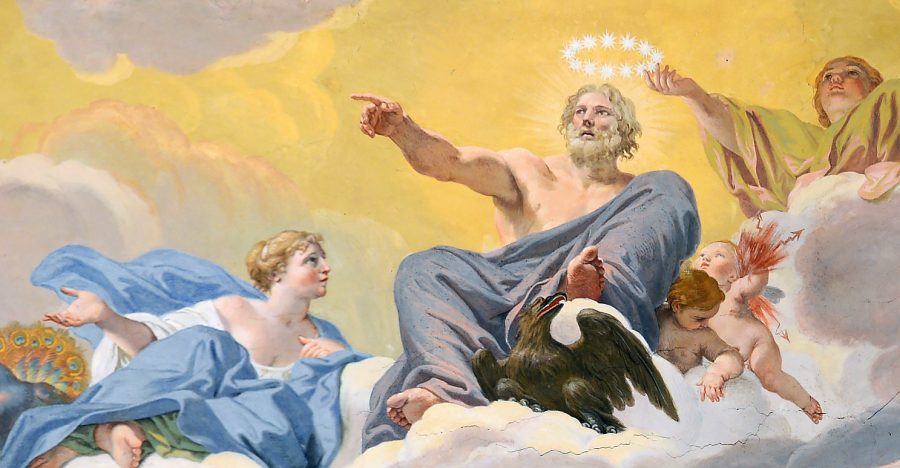
Your ability to sustain a satisfying relationship, commit to productive work ethics, speak up and assert yourself, fend for yourself and succeed at your endeavours are all related to a positive father imago.
People that are successful with relationships of all kinds, friends and lovers, know how to respect the feelings and needs of others.
However, society is designed to deprive a child of their father’s attention. Career-minded fathers barely see their children, others spend most of their spare time outside with their friends, whilst others are distant and emotionally unavailable.
The “absent” father, whether physically or emotionally, is the cause of many unresolved “daddy issues” in the modern era.
There can be many reasons why people develop a father-complex. In general, it is when the father is either physically or emotionally absent, abusive (verbally and/or physically), critical, and neglect.
Inevitably, fathers leave a unique imprint on a child’s way of thinking which ultimately has an impact on your emotions.
Modern psychology recognises the father influences his child in six ways:
No matter how much you want to pretend you don’t have “daddy issues,” most people will have unresolved wounds that habitually surface.
My own daddy demons manifested as a lack of self-esteem and self-worth. When I was a boy I was scared of my father even though he was barely around the house. When he was at home, he spent most of his time alone in his garage woodturning.
Potentially dangerous tools and absent-minded infants (yours truly) are not a good combination. My interaction with my father as a child was minimal and rarely fulfilling.
Yet in many ways, I have been fortunate. My father was not an intentionally bad parent. He rarely smacked me, and he never beat me once. I have him to thank for instilling in me strong moral values.
His neglect came by way of criticism and emotional absence. He rarely showed any affection and loving gestures towards my mother were also rare.
Unsurprisingly, the marriage ended with a divorce when I was ten. Afterwards, I saw even less of him and the alternate weekends when I did stay with him, we hardly exercised in father-son bonding.

Like many son’s, I looked up to my father and wanted him to be proud of my achievements. If he was, he never showed it.
I remember when I was eleven, I earned the second most merit marks (gold stars) in my class at school. My father’s response was, “why didn’t you come first.”
Most parents do not intend to belittle their children, but off-the-cuff remarks like this plant a seed that will not flower into anything beautiful. The more likely outcome is an innate belief that has a negative effect later in life.
“The child is a defenceless entity, without means of self-protection or self-assertion. His own body, his activities, and the functional activities of his organisms are his only possessions. He has nothing else in the world. These also are the sole means of expression of his will, of his feelings. His environment contains giants, powerful personalities, mother and father, who more often than not in the early days fulfil his every wish and whim, but who later create an atmosphere which is in collision with the impulse of the child.” ~ Israel Regardie, Gold
And so it was.
On one occasion, as a seven-year-old, my teacher gave me a “black spot” for not being able to answer a maths question. I remembered the class being noisy as I stood by her desk, and my mind went blank.
The punishment for a black spot was to stand in front of the entire school assembly to set an example to other children not to be naughty. Or in my case not to be stupid.
Or cared about, it seemed to me.
My mind would often go blank when my father was showing me how to do something. I didn’t realise it at the time, but these brain-farts was fear.
My father thought he was playing a game. All I wanted was a cuddle.
The harder I tried to reach him, the more he pushed me away. Completely frustrated and devastated I burst into tears. My father said, “Stop being a little baby.” I was six years old.
During a healing meditation, I realised that moment was one of the early experiences of rejection that would eventually transform me into an emotional cripple.
It was certainly a catalyst that would trigger a string of experiences where rejection reared its ugly head. Ultimately it would compound my inability to love or feel wanted.
As a teenager, I built barriers as a coping mechanism. I’ve spent most of my life dead inside.
If I hadn’t learned how to transform repressed energies, I dread to think what kind of car crash my life would be right now.
A father complex is often the underlying problem in relationships. If you’re the type of person that sabotages a relationship so your partner doesn’t have the chance to reject you, you have abandonment issues which probably stem from your father.
More often than not, it is the father complex that is responsible for your inability to make a commitment, devise an irrational lack of trust in lovers, develop poor communication skills or try to understand our partner’s feelings (although these also share a correlation with the mother complex as well).

Conversely, people who have a loving and secure relationship with their parents are more likely to grow into confident and self-assured adults.
The simple fact of the matter is that children need a dependable adult to form secure attachments.
Attachment patterns are formed during childhood. Secure attachment styles result from parents that are responsive to the needs of a child and are emotionally available for them.
If this is not available, the individual will develop an “insecure attachment style” later in life.
Insecure attachment styles are categorised as secure or insecure with several degrees and subtypes of security:
Anxious or ambivalent: This type of insecure attachment is notable if you feel overly anxious at the start of relationships, paranoid the other person will reject you, needy, and in constant need of validation.
Dismissive-avoidant: The main issue with the avoidant type is a trust issue. They feel they will get hurt so build barriers and eventually sabotage the relationship.
Fearful-avoidant: People that feel uncomfortable around intimate moments have an insecurity issue that makes them unable to address difficult feelings.
Although psychologists name specific categories for attachment patterns, people will fall into more than one category type. For example, I was anxious and dismissive-avoidant.
Children that suffered physical or emotional trauma in relation to their father can develop patterns of insecurity that make them dysfunctional in a number of different ways so be mindful, and honest, with yourself.
However, it is also important to note the result of past traumas is psychological. They are part of your conscious make-up and can be overcome.
By bringing unconscious content into the awareness of your conscious mind, you can work with healing programs that transform your life.
In some areas, the effects of a father complex differ across genders. Below I’ll address common traits in which the masculine principle is unbalanced in men and women.
Men develop father complexes because they did not get approval from their father’s. Consequently, they develop a lack of self-worth and a lack of self-love.
These negative feelings towards the Self subsequently become reflected by the rest of society. Sometimes, people won’t even allow you to have an opinion which further damages your self-respect.
In general, the father complex in a man manifests in the persona. As one of the dominant archetypes in a man’s psyche, the remnants of unconscious scars imposed by the father can erupt in anger, aggressive behaviour and bouts of violence.

In society, the general stereotype of the male is to be the provider and the protector of the family.
Men that are emotionally insecure adopt this stereotype as their persona so they appear to fulfil the requirements expected of a man by the collective conscious.
In reality, macho types have no control over their emotions. The knock-on effect is they have no control over their actions. The reason they have no control over their emotions or actions is that they are not in control of their own mind – society is.
In the north of England where I grew up, the majority of men fit this mould. You are probably familiar with similar types in your home town too. These remnants are of a bygone era where men were taught not to express their emotions.
This idea ingrained in the collective conscious is passed down from father to son through countless generation. This societal construct makes men unhinged and unbalanced.
Similar problems still persist today. Studies have shown that men are penalised for straying from the social norms of masculinity. Men that ask for help or are too “nice” are considered by society as being weak, less confident or incompetent.
In reality, it is the other way round.
However, not all men show violent or aggressive tendencies. Others need to prove their manliness to themselves by being promiscuous. The power of seduction is precisely that; power.
Yet obtaining power over women is an illusion. What men should be striving towards is power over their feminine principle; the anima.
Seduction, fights or pursuing financial or materialistic goals to earn respect from others are behaviours that mask repressed emotions.
In the long term, the types of behaviours that project as the result of a father complex do not solve anything. Until you change your inner world – how you think and feel about yourself – you will consistently encounter disruption and chaos in your life.
The unconscious yearning for power and authority becomes a cycle. Rather than affirm your manliness, it eventually makes you miserable. Unless you cultivate inner peace, you will never have a satisfactory relationship with anything.
The father complex arguably hits women harder than it hits men. Although women with “daddy issues” may show similar traits of promiscuity and encounter issues with their relationships, society has a negative view of women who have multiple bed partners.
Not only is this outlook unfair, but it’s also often wrong. Reports reveal that many women are accused of having “daddy issues” in relationships even when they haven’t.
The reason for this perceived promiscuity is because they are afraid of being hurt. When girls do not receive the love and emotional support from their fathers, they feel utterly rejected and are scared to become emotionally involved with a man.
To avoid being hurt, they sabotage relationships before there is any risk of getting hurt. Psychologists attribute this to a fear of abandonment and rejection.
If this resonates with you, the actual reason for your actions is because you have a fear of pain.
Even women with a positive father complex can be ostracised by other women for not being feminine enough. Ironically, it is the accusers that have daddy issues – and a mother complex to boot.
Many women actually have a strong masculine nature because they had a good relationship with their fathers. Confident women know their mind.
Because they know what they want, and often know what is right, women with a positive father complex can be less agreeable. This enables them to perform better in the workplace.
It may also help manage a successful, long-lasting relationship because of their ability to intellectually spar with their male counterpart.
However, women that consider themselves better than their partner will be overly critical and domineering. This is more likely to make the relationship more toxic.
A daughter will suffer more in adulthood when she is denied emotional support from her father. She can encounter multiple problems because there is a tendency to sabotage things that make them happy.

The father complex manifests in the nature of the animus, the masculine principle in women.
When a father has instilled his daughter with an example of what masculinity is supposed to be, she will be at ease with men. Subsequently, she will be able to have a successful relationship.
If not, she will conjure up an ideal of what manhood is. Needless to say, this image of manhood is moulded by society in the form of macho heroic types and gallant princes. And society has seriously screwed up what a man and a woman should be.
Such unrealistic illusions are often the causal root of toxic relationships.
Women with a father-complex also tend to look towards men for validation. They want to be told they are beautiful and feel they are loved.
Whilst this is a natural response between the opposing sexes, complex or not, when women don’t feel she is getting the love and attention she deserves, or desires, she can turn very nasty.
Anger and frustration towards men is an overwhelming fear that he will abandon her just like her father. The abandonment may not necessarily have been physical. Emotional absence also plays a significant role in the development of a child.
Women that are in relationships with a man with a father complex will usually find her love is also emotionally absent. The cyclical nature of your unconscious is searching for the attention you didn’t receive from your father.
The negative father complex makes a woman feel devalued in everything she does. Ultimately, the search for male approval ends in disappointment and misery.
Girls that flirt aggressively and have promiscuous tendencies is merely an attempt for male attention and affection. They need validation because they are insecure about themselves.
Other patterns of insecurity lead to food disorders such as binge eating, overeating, anorexia and bulimia. Studies show that daughters without dads are twice as likely to have problems with obesity.
Comfort eating comes from deeply ingrained insecurity that develops because they think nobody likes them. A child will think that if her father doesn’t show his “little princess” any love, then nobody will.
When a female believes nobody will love her she then becomes very body-conscious because women’s magazine project the idea that you have to be beautiful and sexy for men to love you.

As a result, girls develop bulimia and anorexia. According to ANAD (National Association of Anorexia Nervosa and Associated Disorders) at least 30 million people of all ages suffer from an eating disorder in the US alone.
Moreover, someone dies as a direct result of an eating disorder every 62 minutes – the highest mortality rate of any mental illness.
For women, the cure for the father complex is to accept yourself for who you are, develop mental strength and exercise your intellectual prowess. Knowledge is power and with knowledge, you are better equipped to take charge of your own mind.
The father exerts his influence on the intellectual capacity of his child. In mythology, the father figure typically appears as a wise old man, a ruler, or a God that imparts advice to the hero.
Kings are either benevolent or tyrannical. Gods can perform heroic feats or pose problems for the world/city they are responsible for protecting. Whilst the world/city can be viewed as a responsibility towards an external entity such as a child, they symbolically represent the body.
Whilst it is true that society, via our fathers and mothers etc, pollutes the contents of your mind, your responsibility as an adult, is to identify daddy issues and upgrade the subconscious programs that automatically prompt your thoughts and actions.
“Sometimes the father figure will bully the ego-conscious into the way he should go, which for sheer stupidity he would never have found by himself. The ego nature of the black magician, for example, performs evil for evil’s sake (to help you learn a lesson).” ~ Carl Jung, Psychology and Alchemy
The transformation after healing a father complex can be remarkable. A man can emerge with a stronger sense of his identity and find the strength to achieve anything he puts his mind to.
The same rule applies to daughters. Developing masculine principles in relation to the mind can help a woman avoid unnecessary squabbles and learn to rationalise why thoughts, feelings and instinctive behaviours impress themselves upon her psyche.
For men to achieve a balance of emotional intelligence, you also need to integrate your mother complex which often shows as an anima possession. For more information, check out my article on the mother complex.
Image Credit Livioandronico2013 (Zeus y Hera detail of “Council of the Gods” in Galleria Borghese)